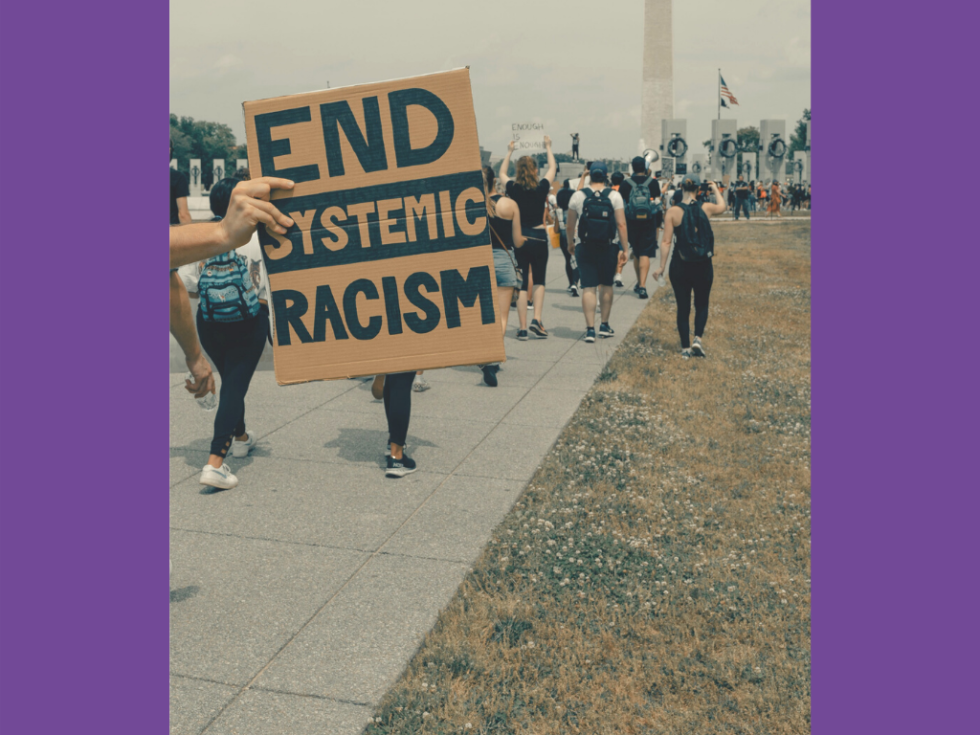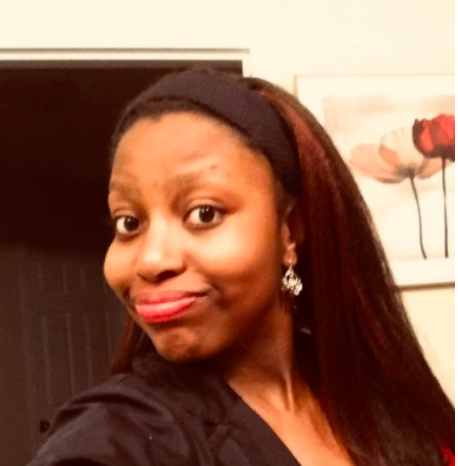
Black Lives Matter: The Movement, Not the Moment
GUEST WRITER: Lin Ajayi reminds us all that we need to go beyond mere Black Lives Matter social media activism (as in using the #blacklivesmatter on a social media…and that’s it). By writing this article, she is walking the talk.
In this article, you will learn:
- Why parents, teachers, students and school leaders need to be vigilant in shutting down so-called “jokes” about the colour of one’s skin.
- The anti-black attitudes that are an issue not only in the USA, but also in Canada (both within the Black communities, and outside of these communities).
- How we can all help make the world a safer, happier place for Black people and people of colour, moving forward.
Lin is a young black woman in Canada who seeks to shine a light on the multilayered issue of racism towards black people. She wrote this article after racist white American policemen publicly murdered a black American man, George Floyd.
LIN AJAYI: ON RACISM, IDENTITY, AND SELF-PERCEPTION
I’m a black young woman in Canada. I have many privileges – that I will not deny. I’ve grown up in (at least what appeared to me) a great community, I have a diverse group of friends, a good education and of course, healthcare. For most of my life I genuinely believed that growing up would be okay – and it was. I was rarely teased for the colour of my skin.
For most of my life, I thought racism wasn’t as bad as some people made it to appear. I was fortunate enough to not have experienced more extreme forms of racism. So to me, even when I experienced minor forms of discrimination, I thought it to be mistakes. “It could be worse”, “it’s not as bad as it was in the past”, “they’re just joking”. But all of these incidents have had impacts on how I perceive myself and my race in the world. It made me wonder if my dark skin was a curse, if I’d be prettier if my skin was lighter.
In light of recent issues, I found myself questioning the society I live in more often. One day I was looking in the mirror and it finally hit me: I am Black, and because of that, I’m at a disadvantage. More so, since I’m not a light skinned Black person, I’m at even more of a disadvantage.
BLACK LIVES MATTER AND ANTI-BLACKNESS WITHIN THE BLACK COMMUNITY
“But Blacks can’t be racist toward their own race right?” Racist no, colourist and prejudiced however, yes and yes. I still remember one time as a child my mom and I went to a hair salon so that I could get braids. She said something along the lines of “you’re pretty already but we’re going to make you more beautiful.” At first I never thought much of it, but it has still bothered me to this day. Why wasn’t my natural hair beautiful enough? Why did my hair have to look “less Black” in order for me to be more beautiful?
Anti-blackness within the Black community is also important to address. How can we expect others to treat us well if we don’t even treat ourselves with respect?
Take a look at black celebrities you may know: Beyoncé, Zendaya, Halle Berry, Rihanna, etc. Many of them are lighter-skinned. This isn’t just a coincidence. Yes, these Black women have immense talent but would they have been able to become as successful as they now if they were darker-skinned? The sad truth is they likely wouldn’t have. Seeing as we still live in a society where having fairer skin is seen as more desirable, when Black people shine, it’s usually those who are light-skinned that we see.
In my own life, I was once told by an older black woman that I’d have an easier time being hired because I had lighter skin than she did. At first I thought nothing of it – she was living in the past, the darkness of my skin couldn’t possibly affect my employment chances could it? Looking back, I now see that she wasn’t wrong.
Just because I’m Black doesn’t mean I won’t see the benefits of having “lighter” skin (even if I have more of a medium complexion). Both within and outside of the Black community, there is still an anti-blackness mentality that continues to negatively harm us.
BLACK LIVES MATTER, BUT...it's not that bad, is it?
I think we can all agree that yes, it’s not as bad as it used to be in the past. However, that in no way means we can ignore the issues at present. In fact, many issues of the present are caused by systems in place that were made to oppress BIPOC (Black, Indigenous People of Colour) – systems that we use today. From policing to healthcare, there’s no escaping racism.
George Floyd, Michael Brown, Trayvon Martin, Regis Korchinski-Paquet, Breonna Taylor – hopefully these names sound familiar. These people, amongst many others, are all victims of police brutality used by law enforcement. Both Canada and America alike have a long history of innocent Black people (and other people of colour) being injured or killed during encounters with police, or even simply targeted because of the colour of their skin. Sadly, this list of names keeps growing – when will it stop?
Even as we say their names in the hopes that they’ll receive justice, in most cases little to nothing has been done. So when will the continuous pain and hurt done to minority communities by the people supposed to protect and serve us end? When will we get justice?
As much as I hate this year (as I’m sure many of us agree), 2020 was long overdue. We can no longer be idle. We have to confront the injustices that face us, even if they don’t affect us directly. This may be uncomfortable but we have to face this head on. If not now, then when? Now is the time to fight the harsh reality of injustices that affect people of colour (POC) every single day.
It hurts. How so many people can dismiss this or ignore it. How is it even possible to be so careless during a time like this? Reason won’t work – I don’t know how I would explain to people that they should care about other people. That they should care that people are being treated less because of the colour of their skin. Ultimately, caring for each other requires empathy and to do that, you have to look into your heart.
We are all human beings. We’re born on this earth, we live on this earth, and we die on this earth. So why do we treat each other like aliens?
BLISSFUL IGNORANCE
We have to realize this is more than just a trend. #blacklivesmatter isn’t just something to add to your Instagram post – it’s a reality we have to achieve. Fighting for racial equality, justice and accountability is not a moment: this is a movement that will follow us throughout our lifetime, and for generations to come.
By now, we recognize that there are issues. Where can we go from here? It’s simple. We educate. We learn about the history that has led to the problems we have today. We listen to the voices who have been oppressed and discriminated against and give them a platform to share their experiences.
Even with this, there will be some who will not listen – whether it’s their ignorance (ignorance is bliss, as the saying goes) or deep internalized hatred. It’s unfortunate but it’s important to focus our energy on what can be changed/fixed. And this change starts within our own hearts and minds. It starts with how we view others who are different to us, how we treat them, and how we use our own life experiences to lift others up.
When someone is speaking out against injustice don’t just be there – stand up. Amplify the voices of those around you that are fighting for justice, that are demanding change. By doing so, you’re uplifting these voices – and using your own to make a difference.
Black lives matter everyday, not just when it’s trending. Especially when it’s not trending. So, look into your own heart and ask yourself these questions:
- What are my own biases?
- How can I use any privileges to help?
- And lastly: What can I do to be actively anti-racist?
If we do all these and take positive action, we can continue building a world that’s more empathetic, accepting and humane. After all, unity of diversity is true beauty.
ABOUT THE AUTHOR

Lin Ajayi graduated high school from Colonel By Secondary School where she received her IB Diploma. She wrote this article while studying Biomedical Sciences. She aspires to work in the mental health field. For more of her written work check out: https://overthepop.wixsite.com/mysite



